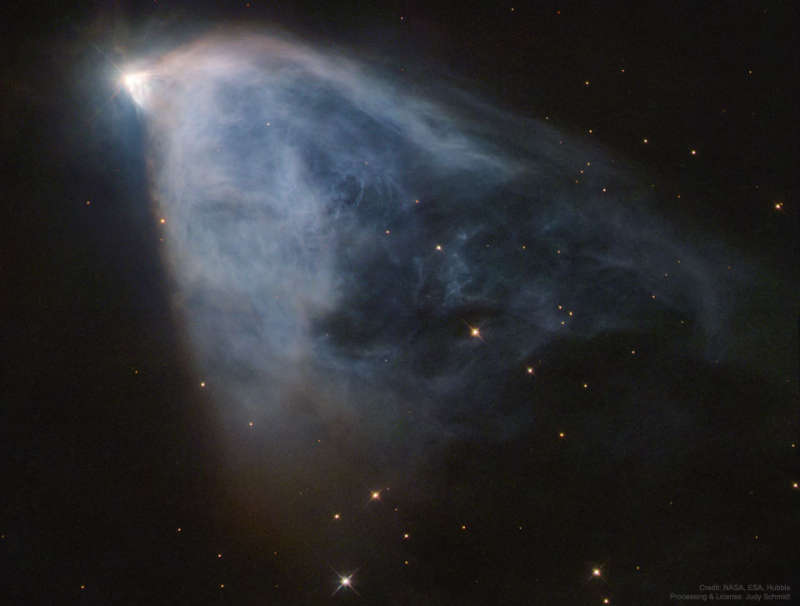Credit & Copyright: Hubble,
NASA,
ESA;
Data: Mark Clampin
(NASA's GSFC);
Processing &
License:
Judy Schmidt
Explanation:
What causes Hubble's Variable Nebula to vary?
The unusual nebula featured here changes its appearance noticeably in just a few weeks.
Discovered over 200 years ago and subsequently
cataloged as NGC 2661,
the remarkable nebula is named for
Edwin Hubble, who
studied it
early last century.
Fitting, perhaps, the
featured image was taken by another namesake of Hubble: the
Space Telescope.
Hubble's Variable Nebula is
a
reflection nebula
made of gas and fine
dust fanning out from the star
R Monocerotis.
The faint nebula is about one
light-year across and lies about 2500 light-years away towards the
constellation of the
Unicorn
(Monocerotis).
The leading
variability explanation for
Hubble's Variable Nebula holds that dense knots
of opaque dust pass close to
R Mon and cast
moving shadows onto the reflecting dust seen in the rest
of
the nebula.
Open Science:
Browse 1,500+ codes in the Astrophysics Source Code Library
1999 2000 2001 2002 2003 2004 2005 2006 2007 2008 2009 2010 2011 2012 2013 2014 2015 2016 2017 2018 2019 2020 2021 2022 2023 2024 2025 2026 |
Yanvar' Fevral' Mart Aprel' Mai Iyun' Iyul' Avgust Sentyabr' Oktyabr' Noyabr' Dekabr' |
NASA Web Site Statements, Warnings, and Disclaimers
NASA Official: Jay Norris. Specific rights apply.
A service of: LHEA at NASA / GSFC
& Michigan Tech. U.
|
Publikacii s klyuchevymi slovami:
reflection nebula - Pylevaya tumannost' - otrazhatel'nye tumannosti
Publikacii so slovami: reflection nebula - Pylevaya tumannost' - otrazhatel'nye tumannosti | |
Sm. takzhe:
Vse publikacii na tu zhe temu >> | |
